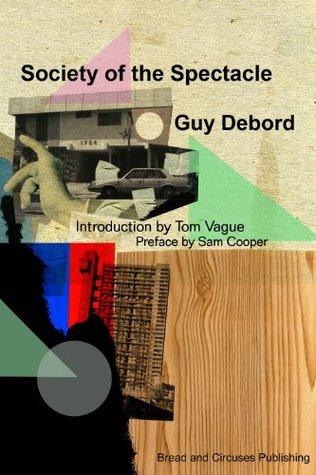More on this book
Community
Kindle Notes & Highlights
To describe the spectacle, its formation, its functions and the forces which tend to dissolve it, one must artificially distinguish certain inseparable elements. When analyzing the spectacle one speaks, to some extent, the language of the spectacular itself in the sense that one moves through the methodological terrain of the very society which expresses itself in the spectacle. But the spectacle is nothing other than the sense of the total practice of a social-economic formation, its use of time. It is the historical movement in which we are caught.
The economic system founded on isolation is a circular production of isolation. The technology is based on isolation, and the technical process isolates in turn. From the automobile to television, all the goods selected by the spectacular system are also its weapons for a constant reinforcement of the conditions of isolation of “lonely crowds.” The spectacle constantly rediscovers its own assumptions more concretely.
This is the principle of commodity fetishism, the domination of society by “intangible as well as tangible things,” which reaches its absolute fulfillment in the spectacle, where the tangible world is replaced by a selection of images which exist above it, and which simultaneously impose themselves as the tangible par excellence.
When ideology, having become absolute through the possession of absolute power, changes from partial knowledge into totalitarian falsehood, the thought of history is so perfectly annihilated that history itself, even at the level of the most empirical knowledge, can no longer exist. The totalitarian bureaucratic society lives in a perpetual present where everything that happened exists for it only as a place accessible to its police.
Fascism was an extremist defense of the bourgeois economy threatened by crisis and by proletarian subversion. Fascism is a state of siege in capitalist society, by means of which this society saves itself and gives itself stop-gap rationalization by making the State intervene massively in its management.
Although fascism rallies to the defense of the main points of bourgeois ideology which has become conservative (the family, property, the moral order, the nation), reuniting the petty-bourgeoisie and the unemployed routed by crisis or deceived by the impotence of socialist revolution, it is not itself fundamentally ideological. It presents itself as it is: a violent resurrection of myth which demands participation in a community defined by archaic pseudo-values: race, blood, the leader. Fascism is technically-equipped archaism. Its decomposed ersatz of myth is revived in the spectacular
...more
Structure is the daughter of present power. Structuralism is the thought guaranteed by the State which regards the present conditions of spectacular “communication” as an absolute. Its method of studying the code of messages is itself nothing but the product, and the acknowledgement, of a society where communication exists in the form of a cascade of hierarchic signals. Consequently it is not structuralism which serves to prove the transhistorical validity of the society of the spectacle; it is on the contrary the society of the spectacle imposing itself as massive reality which serves to
...more
The critical concept of spectacle can undoubtedly also be vulgarized into a commonplace hollow formula of sociologico-political rhetoric to explain and abstractly denounce everything, and thus serve as a defense of the spectacular system. It is obvious that no idea can lead beyond the existing spectacle, but only beyond the existing ideas about the spectacle.
Ideology is the basis of the thought of a class society in the conflict-laden course of history. Ideological facts were never a simple chimaera, but rather a deformed consciousness of realities, and in this form they have been real factors which set in motion real deforming acts; all the more so when the materialization, in the form of spectacle, of the ideology brought about by the concrete success of autonomized economic production in practice confounds social reality with an ideology which has tailored all reality in terms of its model.


